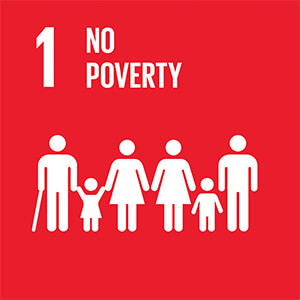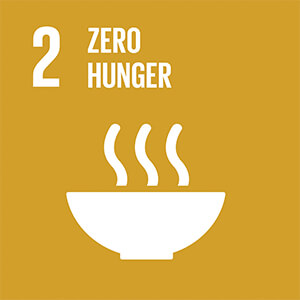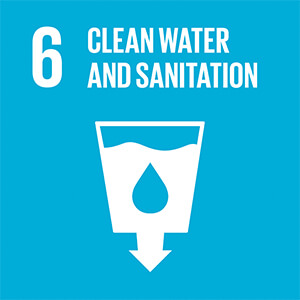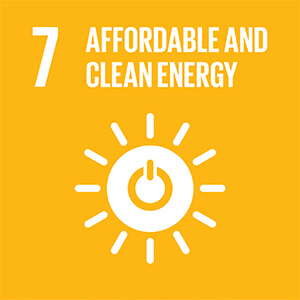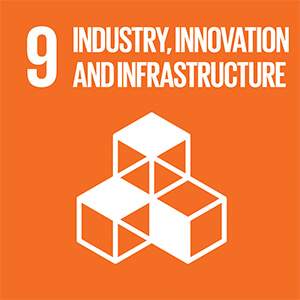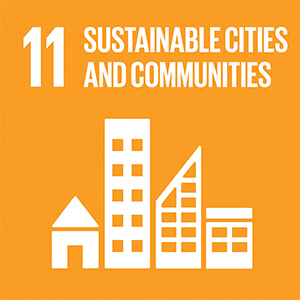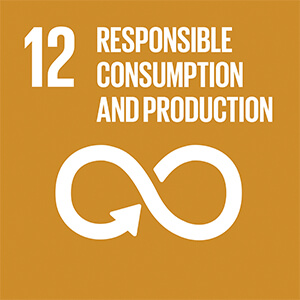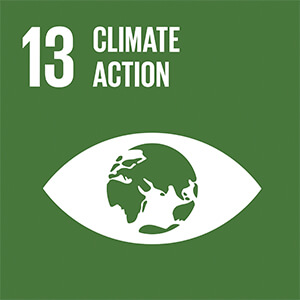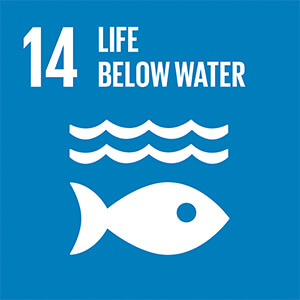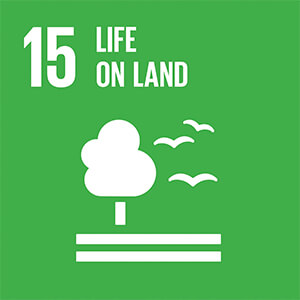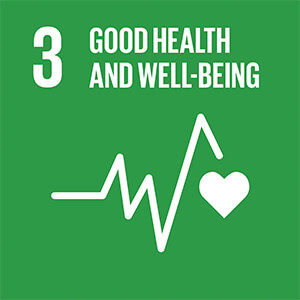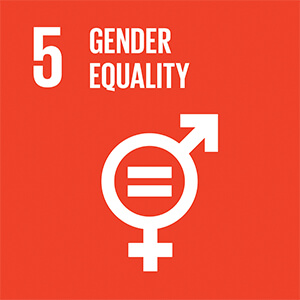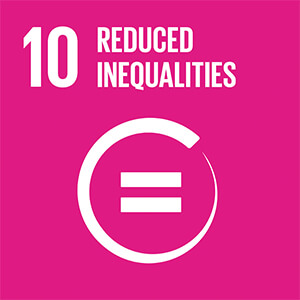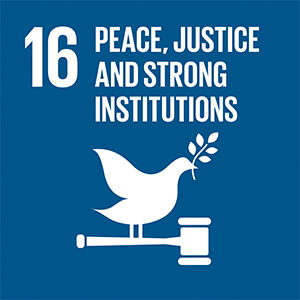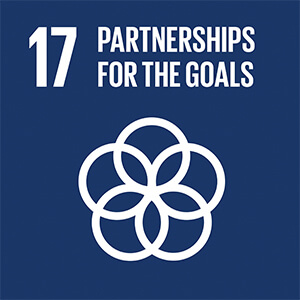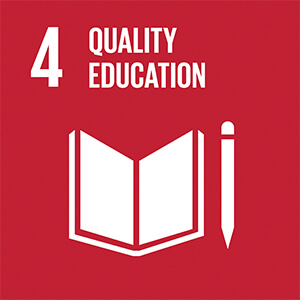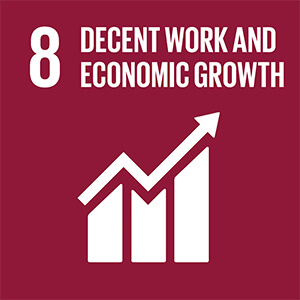Leadership Goal
Objective
Driving accountability and performance along our value chain.
Relevant Sustainable
Development Goals
Overview
Landcom’s Accountable & Collaborative Places pillar is focused on a leadership goal to ‘drive accountability and performance along our value chain’. This leadership goal was developed to reflect Landcom’s commitment to robust governance collaboration within our organisation and supply chain.
Accountability means creating a system with a level playing field in which decisions are made for the betterment and benefit of all stakeholders. Performance means seeking ever greater improvements in efficiency and outcomes. Our value chain refers to all organisations that we deal with in operations. By championing better ways to approach business we seek to lead the industry in trust, transparency, governance and efficient outcomes.
Landcom addresses accountability and collaboration through the following focus areas:
• Accountability
• Human Rights
Each of these focus areas includes a suite of priorities or actions to measure our success. While this pillar includes individual priorities for achievement, it also has a broad governance reach across Landcom’s entire Sustainable Places Strategy.
Case Study
Sustainable Supply Chain for Merchandise
We are committed to sustainable procurement when fulfilling our merchandise needs, which includes ethically produced products that don’t harm the environment or people.
READ MOREManagement Approach
Landcom is committed to supporting international agreements, protocols and targets to ensure our planet and communities thrive into the future. Urban development and the property sector make a material contribution to global emissions, the quality of life experienced by citizens and the resilience of our built and natural environments.
Therefore, Landcom believes it is critical to align with, and report our contribution towards the United Nations Global Compact, Sustainable Development Goals, Resilient Sydney Strategic Directions and COP21 Paris Agreement. We also voluntarily report against the Task Force on Climate-related Financial Disclosures, and we are a reporting entity under the Commonwealth Modern Slavery Act 2018.
|
|
||
|
United Nations Global Compact (UNGC) |
In February 2019 Landcom became a Participant of the United Nations Global Compact. We report our Communication on Progress annually as part of this report within the GRI table. See APPENDIX F: GRI Content Index |
||
|
Sustainable Development Goals |
Our Sustainable Places Strategy was directly informed by the Sustainable Development Goals (SDGs). We report our contribution to the Sustainable Development Goals annually. See Appendix D: Sustainable Development Goals Alignment. |
||
|
Paris Agreement COP21 |
Our environmental leadership goal is to ‘enable carbon neutral outcomes at communities by 2028’. See Greenhouse Gas Emissions Reduction and Urban Heat Island Reduction. |
||
|
GRESB |
Landcom voluntarily participates in the GRESB Real Estate Assessment, which evaluates the environmental, social and governance (ESG) performance of real assets. See GRESB. |
||
|
Climate Active Carbon Neutral Certification |
In FY20 Landcom registered to become a carbon neutral certified organisation. The registration is currently being formalised. |
||
|
Task Force on Climate-Related Financial Disclosures |
Landcom discloses its approach to managing climate change risks in accordance with the Task Force on Climate-related Financial Disclosures. FY20 is the first year these disclosures have been provided. See TCFD Disclosures. |
||
|
NSW Government Resource Efficiency Policy |
We report our overall sustainability performance against the NSW Government Resource Efficiency Policy (GREP), which guides our approach to energy, water and waste efficiency in our corporate operations, and helps demonstrates Landcom’s alignment with the NSW State Government’s sustainability goals.36 For our FY19 performance against the GREP see Accountability Performance Results. 36 As outlined in NSW 2021: A Plan to Make NSW Number One which aims to drive resource efficiency by NSW Government agencies in three main areas — energy, water and waste — and to reduce harmful air emissions from government operations. |
||
|
Human Rights |
Landcom operates entirely within NSW, and as such benefits from high standards of governance and legislation Australia adopts regarding human rights. We are a Participant to the United Nations Global Compact (UNGC) and we support the ten principles of the Global Compact on human rights, labour, environment and anti-corruption. We focus on human rights areas we have the potential to influence, mitigate or remediate. This includes our identified focus areas of modern slavery, workplace diversity and inclusion, and workplace wellbeing. To see more on our management approach for Human Rights, see below. | ||
|
Commonwealth Modern Slavery Act 2018 |
Landcom is a reporting entity under the Act, and provides our Board approved public statement within this report. See APPENDIX C: Modern Slavery Statement |
In FY20 Landcom has elevated Human Rights to a focus area within the Sustainable Places Strategy, in response to Human Rights being identified as a material issue for the organisation in FY19.37
Landcom’s identified priority areas for Human Rights include modern slavery, workplace diversity and inclusion, and workplace health and wellbeing. These priorities were identified as part of an FY18 Human Rights Salience Assessment.
As a broader part of Landcom’s commitment, in 2019 we became the first Government Land Organisation to be accepted as a signatory to the Ten Principles of the United Nations Global Compact (UNGC). Landcom’s first Communications on Progress was published by the UNGC in January 2020.38 Landcom continues to remain a committed signatory, focused on advancing our contribution to fundamental responsibilities in the areas of human rights, labour, environment and anti‑corruption.
Landcom also leverages its internal policies and frameworks to guide our approach, including our Diversity & Inclusion Policy and Action Plan, Employee Wellness Program, and Modern Slavery Management Plan.
37 Landcom has enveloped its former Supply Chain focus area into Human Rights.
38 Landcom’s Communication on Progress can be viewed here.
Performance Results
See below our performance results for each of the reporting areas within our Accountable & Collaborative Places Pillar.
Landcom’s Sustainable Places Strategy addresses Accountability. This focus area forms part of our Accountable & Collaborative Places pillar and is a representation of our commitment to robust governance and performance, both within our own organisation and in our supply chain.
Our Annual and Sustainability reporting continues to be an important part of how we transparently share our organisational performance with our stakeholders.
Landcom reports our alignment and contribution to achieving the Sustainable Development Goals (SDGs).
Landcom’s Sustainable Places Strategy is aligned to all of the Sustainable Development Goals. Each year we will continue to track our progress against meeting the Sustainable Development Goals and their respective targets relevant to Landcom and our operations.
| Sustainable Places Strategy Pillar SDGs |
Sustainable Development Goals |
|---|---|
| Climate Resilient Places |
|
| Healthy & Inclusive Places |
|
| Productive Places |
|
| Accountable & Collaborative Places |
|
To see our full alignment against the Sustainable Development Goals, and our targets and actions in FY20 to address them, refer to APPENDIX D: Sustainable Development Goals Alignment.
In FY20 Landcom participated in the GRESB Developer Assessment. This was our fourth year participating in GRESB.
Landcom achieved a score of 90/100, and maintained our Green Star rating and 5 Star entity status. This year extensive updates to the GRESB assessment structure were adopted. As publicly communicated by GRESB, results from FY20 are not comparable to performance in past years.
Overall, Landcom continues to rank within the top 12% of global participants, and exceeds the GRESB and Peer Group average performance.
The following table summarises our results and benchmarking.
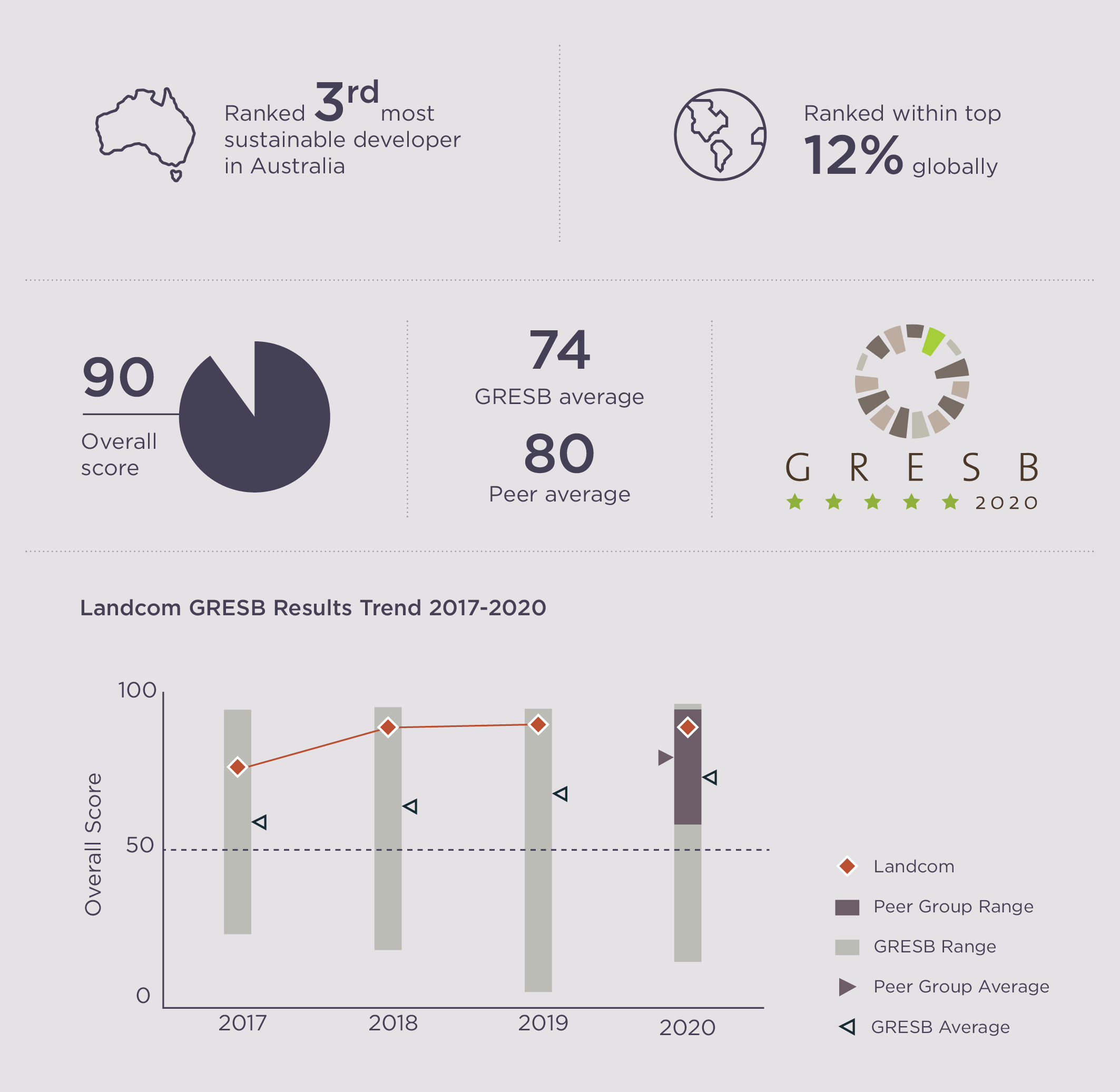
Throughout the reporting period Landcom continued to voluntarily adopt the NSW Government Resource Efficiency Policy (GREP). The GREP helps the NSW Government to set an example in addressing the challenge of rising resource costs, and reducing impacts on our economy, environment and community.
The GREP guides Landcom’s approach to energy, water and waste efficiency in our corporate operations, and helps us align with the State Government’s sustainability goals.39 Key activities in the reporting year related to the GREP include:
- a total of 7.9 tons of Scope 1 CO2 emissions were recorded for the reporting year. Sources were sales offices (gas) and Landcom’s fleet vehicles (fuel combustion). Landcom had no biogenic emissions
- Landcom had no Scope 2 emissions, as the 137,934kWh of electricity used to power our office was 100% Green Power
- based on the total of 151 full time equivalent staff members (FTE), Landcom’s energy intensity is 913kWh/FTE
- we maintained our 6 Star NABERS Energy Rating for our Parramatta Office.
During the reporting period Landcom registered to become a carbon neutral organisation under the Climate Active Carbon Neutral Standard. The Climate Active Carbon Neutral Standard (the Standard) is Australia’s government managed offset scheme for certifying organisations, products and services, and events.
Historically, Landcom has not set a baseline year for our Scope 1 or Scope 2 emissions as we have consistently purchased green power or offset all our emissions within operational control. We will be setting a baseline year as part of our Climate Active carbon neutral certification. We do adopt the National Greenhous and Energy Reporting (NGER) Scheme global warming potential account factors. We use the tool CCAP Integrated to capture and synthesise our data, which also follows the NGER Scheme protocols.
39 As outlined in NSW 2021: A plan to Make NSW Number One, which aims to drive resource efficiency by NSW Government agencies in three main areas — energy, water and waste — and also reduce harmful air emissions from government operations.
The Federal Modern Slavery Act commenced on 1 January 2019. The Act requires entities with an annual revenue of $100 million or more based or operating in Australia to prepare annual statements on potential modern slavery risks in their operations and supply chains and disclose the steps they have taken in addressing those risks. As of FY20, Landcom is a reporting entity under this Act. Landcom’s Modern Slavery Statement is presented at Appendix C.
In FY20 Landcom adopted a Modern Slavery Management Plan to guide the way our organisation identifies, mitigates and remediates the risks of modern slavery within our operations and supply chain.
During the reporting the period Landcom Board, Executives and key Senior Leaders completed modern slavery training, delivered by Better Sydney. Staff wide training is planned for FY21.
Landcom also continued its membership of the Property Council Modern Slavery Working Group throughout the reporting period. The group is represented by risk, sustainability and procurement experts. In 2019 the cohort formed a consortium40 to design and deliver the ‘Supplier Platform’. The Platform provides a consistent approach to engagement on modern slavery across the industry’s shared supply chain, and leverages the consortium’s collective influence to mitigate or remediate instances of modern slavery. Suppliers complete a single questionnaire that is accessible through an online dashboard to the consortium members for whom they work, or wish to work. The Platform also provides capacity building links and resources to suppliers, and is intended to encourage and track continuous improvement, enabling consortium members to collect and evaluate data, or monitor skills gaps and supply chain advances.
A pilot of the Platform commenced in late 2019, with over 700 suppliers across consortium members invited to participate. The pilot objective was to onboard as many suppliers as possible, gain insights on industry wide supply chain risk, and obtain user feedback to refine and improve the tool. The Platform supports consortium members to undertake supply chain due diligence, and removes some barriers that prevent suppliers from proactively engaging on modern slavery, such as administrative burden and effort duplication.
In FY20 Landcom invited current suppliers across civil, landscaping or demolition contractors, home builders, IT services and products, and some professional services to participate in the Platform pilot, and received an approximate 54% engagement rate.
The questionnaire confirmed the majority of participating suppliers included the following risk profile attributes, making their operations or supply chain susceptible to modern slavery:
- high proportion of sub-contractors
- little or no oversight of suppliers’ sub-contractors or third-parties
- products and materials sourced from overseas, with little or no oversight of their production.
These findings are consistent with where the property and construction industry is likely to encounter modern slavery. Low skilled, manual, low-waged work is an area where workers are more likely to be subjected to forced labour, and where the risk of harm to people may increase. These workers may be poorly educated, lack decent work options and be more likely to be migrants from high-risk countries; this is relevant to both operations in Australia, and the overseas supply chain.
The property and construction industry is also characterised by long and complex supply chains, stretching across many countries. Building materials and products are often sourced from countries known to have higher risks of modern slavery.
We’re committed to driving accountability and performance along our supply chain. This means proactively engaging with our suppliers, particularly those we partner with to deliver our projects. As part of our management approach Landcom is a member of the Australian Supply Chain Sustainability School.
Launched in Australia in 2015, the School works to develop the sustainability skills and knowledge of those working in complex property and construction supply chains. Through self-assessment tools and free resources, it helps organisations of all sizes address issues such as modern slavery, sustainable procurement and materials innovation.
In FY21 Landcom will continue to deliver against its Modern Slavery Management Plan, including the development of a remediation approach and seeking to partner with expert industry and nongovernment organisations.
40 Founding members: Abacus Property, AMP Capital, Brookfield Properties, Charter Hall, Cromwell Property Group, Dexus, Frasers Property Australia, Goodman Group, The GPT Group, Investa, ISPT, Landcom, Mirvac, Stockland and Vicinity Centres.
Landcom has continued to promote diversity and inclusions (D&I) across our business throughout FY20.
Our D&I Policy outlines our commitment to providing a workplace culture that embraces equity, diversity and inclusion at all levels of our organisation enabling staff to thrive and do their best work.
Throughout FY20 Landcom’s staff led D&I Working Group continued to meet regularly, and monitor the progress of Landcom’s D&I Action Plan, which focusses on the following key goals:
- create an environment that values diversity & inclusion
- increase attraction, retention, and development of staff from diverse backgrounds, initially prioritising women, Aboriginal and Torres Strait Islanders, culturally and linguistically diverse people, people with disability, generational diversity and LGBTQIA+
- reduce bias and embed diverse and inclusive practices into how we work.
As part of the Action Plan, and to help enable the above goals, Landcom has adopted a suite of D&I measures and metrics, benchmarked against several Australian datasets. Our FY20 results are presented in Landcom’s Annual Report.
In helping to develop a culture that truly values diversity and inclusion through building awareness and understanding, we held an Indigenous Cultural Awareness session for our Senior Leaders. This included an overview of Indigenous history, culture, identity, capacity building and engagement by the Mirri Mirri Cultural Awareness company.
In FY20 Landcom participated in the Diversity Council of Australia’s Inclusion@YourWork survey to further our diversity efforts. The Diversity Council Australia (DCA) is the not-for-profit peak body leading diversity and inclusion in the workplace. The survey was distributed to all staff and assessed a number of factors that make up an inclusive workplace such as leadership, culture, and teams.
Based on our results Landcom was named as an Inclusive Employer.
Landcom recognises that managing work, relationships, caring responsibilities, finances and other life needs can be challenging at times for us all. To support our staff, in FY19 Landcom introduced LifeStreet – a new Employee Assistance Program focused on wellbeing and an individuals’ life as a whole.
Accessible to all staff, LifeStreet offers usual assistance services to employees and immediate family members, and has resources and tools for staff to use in their lives more broadly.
Digitally based, users can access their own LifeStreet profile via a secure login, and use self-assessment tools to help direct them to the appropriate resources on their platform. Topics span health and wellness, family and relationships, work and career, psychological and emotional wellbeing, carers needs, financial management and planning and purpose and contribution. Users can also be connected to coaches or medical professionals – such as sleep psychologists if that is an area of personal wellbeing improvement a user may need support with.
In FY20 Landcom responded to the impacts of COVID-19 by encouraging higher engagement with LifeStreet, and making health and wellbeing classes available to staff online.
Our Sustainable Places Strategy
Climate Resilient Places
Enabling carbon neutral, water positive, zero waste and net positive ecological outcomes by 2028.
Healthy & Inclusive Places
Enhancing Landcom’s international status for delivering world class liveable places, founded on equity, affordability and inclusion by 2036.
Productive Places
Contributing to the global innovation economy by enabling over 30,000 new jobs by 2036.
